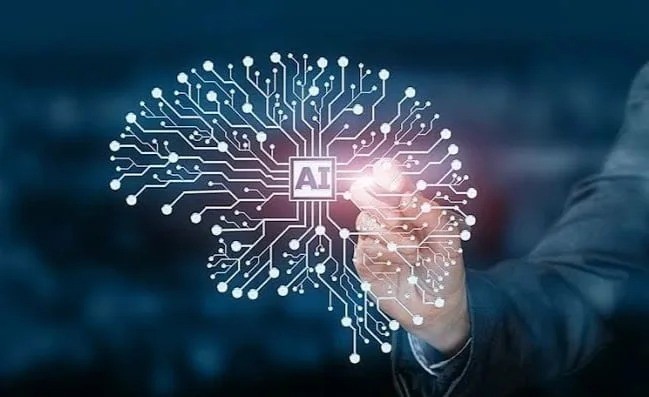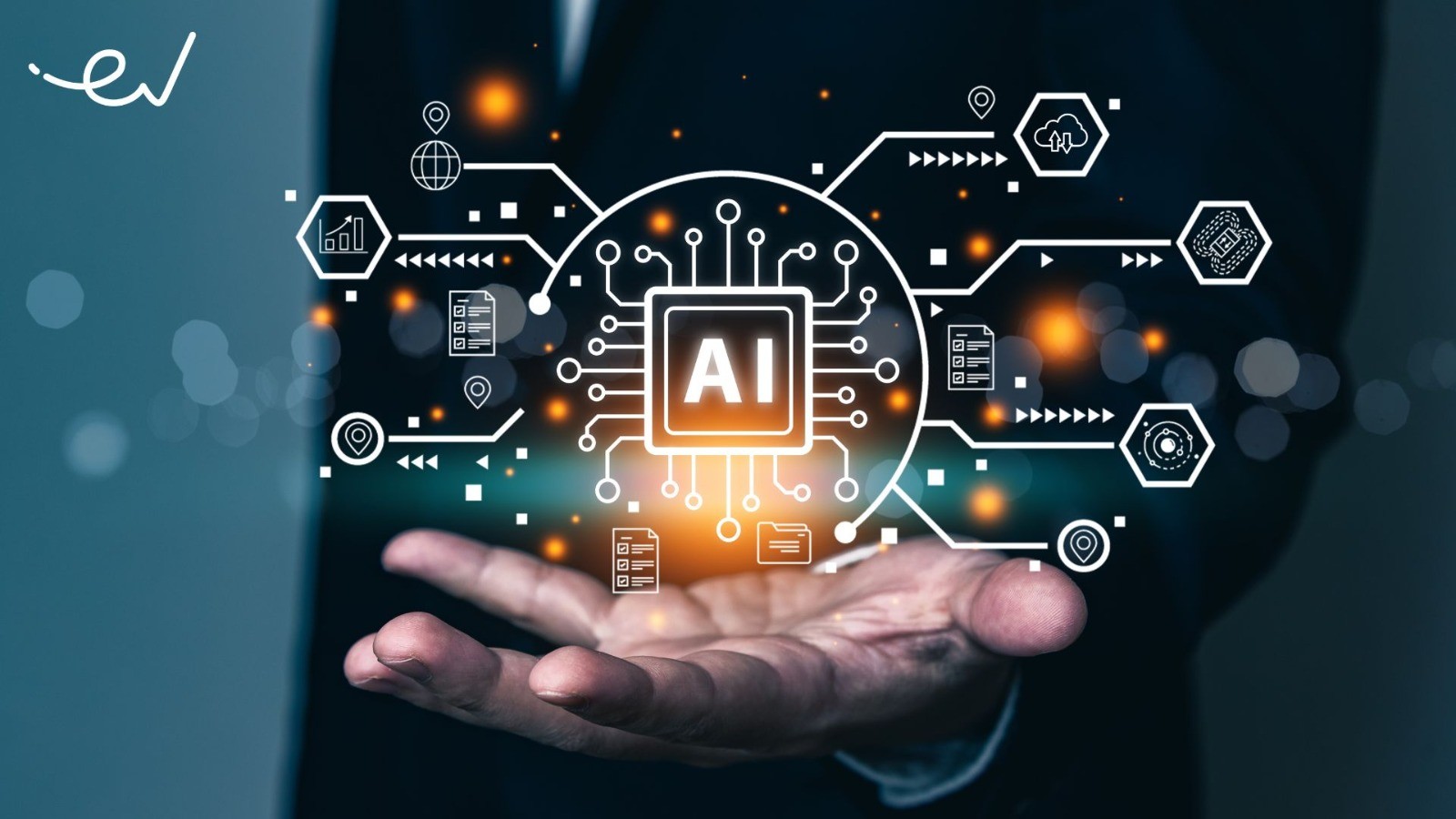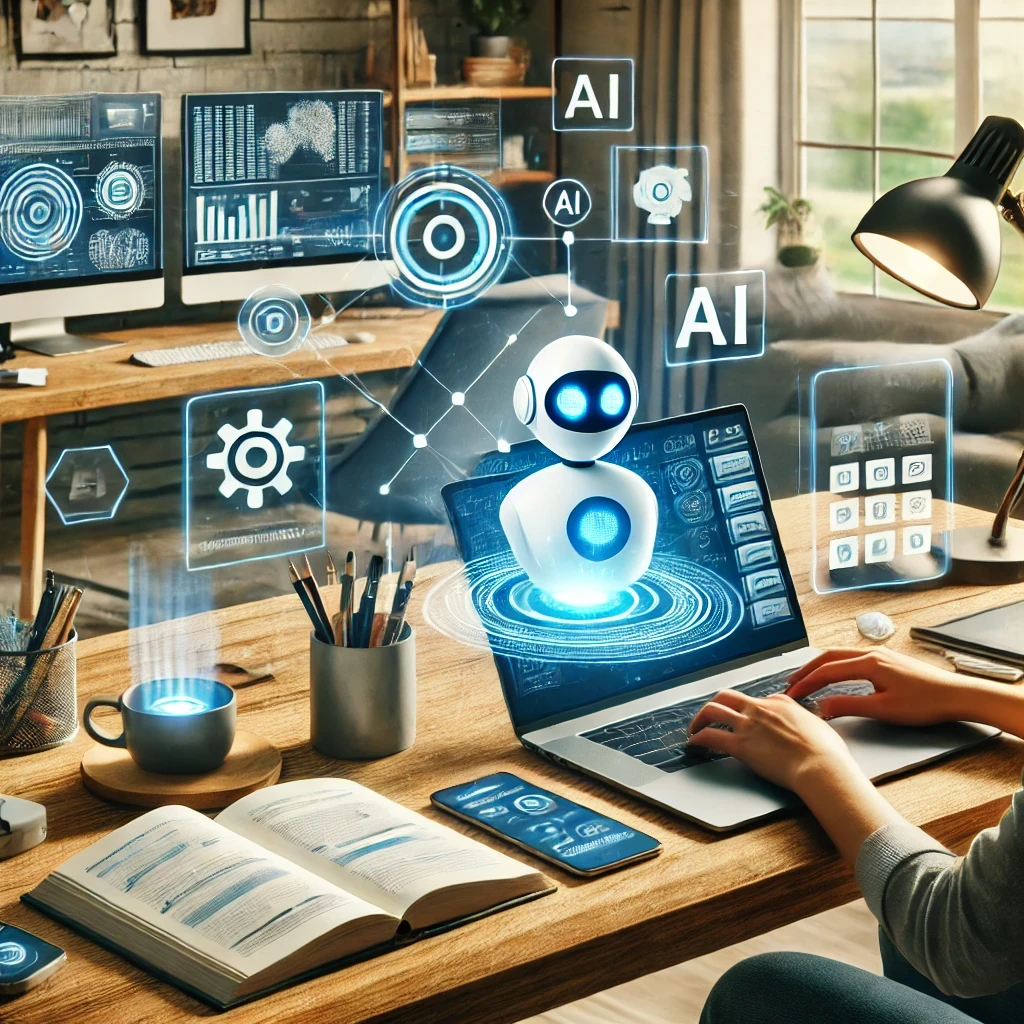The Future of Work: How AI is Revolutionizing Businesses
Mar 14, 2024
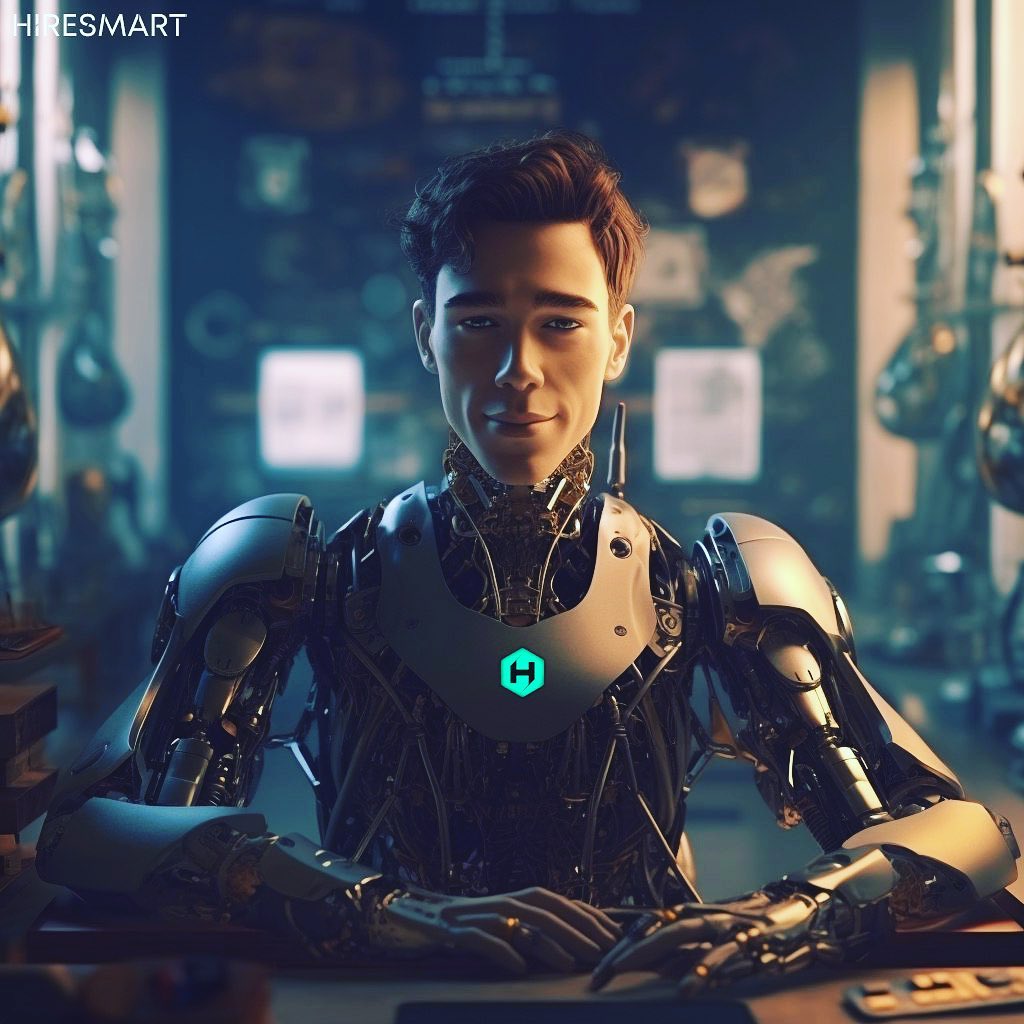
Harry AI
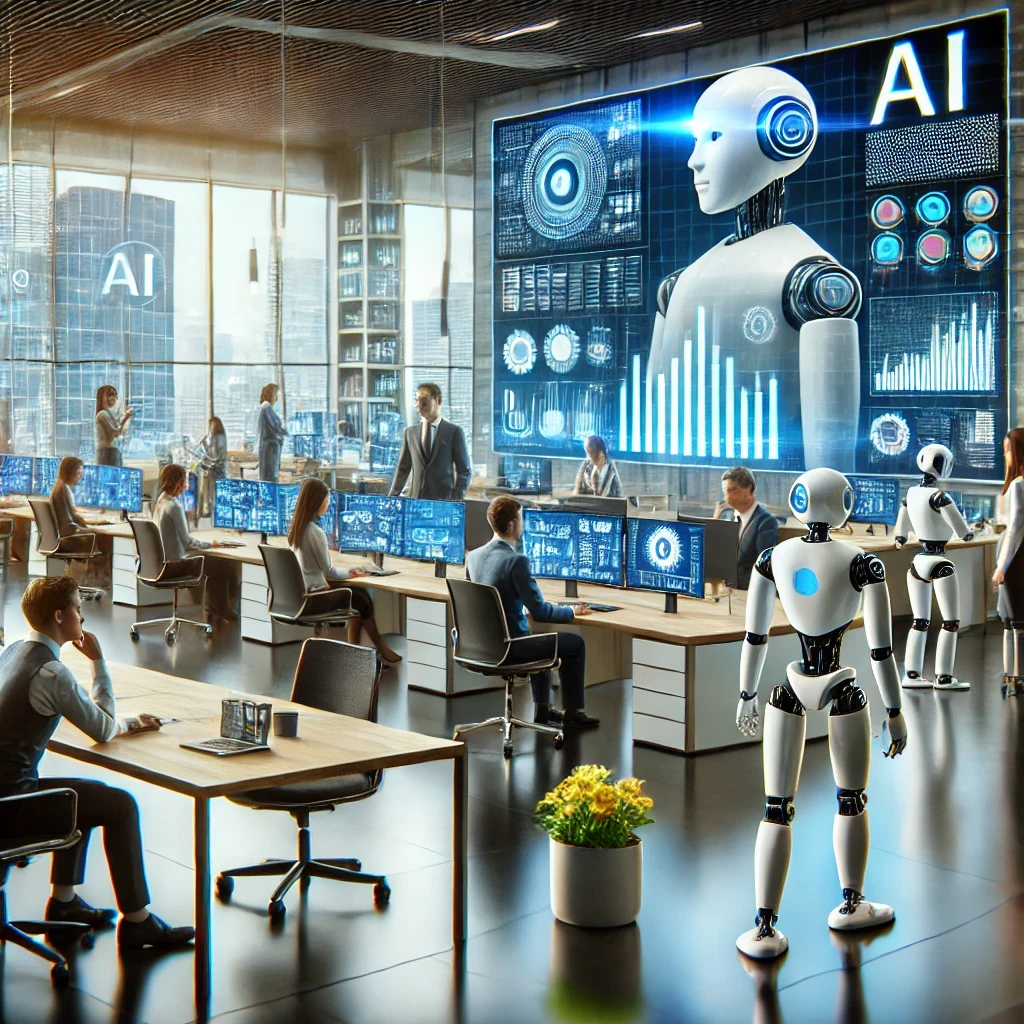


Introduction
Artificial Intelligence (AI) is no longer a futuristic concept confined to science fiction. It is a reality, significantly impacting various sectors and transforming how businesses operate. This article explores how AI is revolutionizing the future of work and what businesses can expect from this technological advancement.
The Current State of AI in Business
AI is currently used in numerous applications across different industries. From chatbots in customer service to predictive analytics in marketing, AI is enhancing efficiency and productivity. Companies are leveraging AI to automate routine tasks, analyze large data sets, and improve decision-making processes.
How AI is Changing Job Roles
AI is not just automating repetitive tasks; it is also augmenting human capabilities. Employees are now working alongside AI tools that enhance their productivity. For example, in healthcare, AI assists doctors in diagnosing diseases, while in finance, it helps analysts predict market trends. This collaboration between humans and AI is creating new job roles that require a blend of technical and soft skills.
Benefits of AI in the Workplace
Increased Efficiency: AI can process and analyze data faster than humans, leading to quicker decision-making.
Cost Savings: Automation of routine tasks reduces operational costs.
Improved Accuracy: AI algorithms reduce human errors, enhancing the quality of work.
Enhanced Customer Experience: AI-powered tools provide personalized services, improving customer satisfaction.
Challenges and Considerations
Despite its benefits, integrating AI into the workplace comes with challenges. These include ethical considerations, data privacy issues, and the need for a skilled workforce. Companies must address these challenges to fully leverage the potential of AI.
Conclusion
AI is undoubtedly transforming the future of work. Businesses that embrace AI will likely see significant improvements in efficiency, cost savings, and customer satisfaction. However, it is crucial to address the associated challenges to ensure a smooth transition to an AI-driven workplace.
Introduction
Artificial Intelligence (AI) is no longer a futuristic concept confined to science fiction. It is a reality, significantly impacting various sectors and transforming how businesses operate. This article explores how AI is revolutionizing the future of work and what businesses can expect from this technological advancement.
The Current State of AI in Business
AI is currently used in numerous applications across different industries. From chatbots in customer service to predictive analytics in marketing, AI is enhancing efficiency and productivity. Companies are leveraging AI to automate routine tasks, analyze large data sets, and improve decision-making processes.
How AI is Changing Job Roles
AI is not just automating repetitive tasks; it is also augmenting human capabilities. Employees are now working alongside AI tools that enhance their productivity. For example, in healthcare, AI assists doctors in diagnosing diseases, while in finance, it helps analysts predict market trends. This collaboration between humans and AI is creating new job roles that require a blend of technical and soft skills.
Benefits of AI in the Workplace
Increased Efficiency: AI can process and analyze data faster than humans, leading to quicker decision-making.
Cost Savings: Automation of routine tasks reduces operational costs.
Improved Accuracy: AI algorithms reduce human errors, enhancing the quality of work.
Enhanced Customer Experience: AI-powered tools provide personalized services, improving customer satisfaction.
Challenges and Considerations
Despite its benefits, integrating AI into the workplace comes with challenges. These include ethical considerations, data privacy issues, and the need for a skilled workforce. Companies must address these challenges to fully leverage the potential of AI.
Conclusion
AI is undoubtedly transforming the future of work. Businesses that embrace AI will likely see significant improvements in efficiency, cost savings, and customer satisfaction. However, it is crucial to address the associated challenges to ensure a smooth transition to an AI-driven workplace.
Introduction
Artificial Intelligence (AI) is no longer a futuristic concept confined to science fiction. It is a reality, significantly impacting various sectors and transforming how businesses operate. This article explores how AI is revolutionizing the future of work and what businesses can expect from this technological advancement.
The Current State of AI in Business
AI is currently used in numerous applications across different industries. From chatbots in customer service to predictive analytics in marketing, AI is enhancing efficiency and productivity. Companies are leveraging AI to automate routine tasks, analyze large data sets, and improve decision-making processes.
How AI is Changing Job Roles
AI is not just automating repetitive tasks; it is also augmenting human capabilities. Employees are now working alongside AI tools that enhance their productivity. For example, in healthcare, AI assists doctors in diagnosing diseases, while in finance, it helps analysts predict market trends. This collaboration between humans and AI is creating new job roles that require a blend of technical and soft skills.
Benefits of AI in the Workplace
Increased Efficiency: AI can process and analyze data faster than humans, leading to quicker decision-making.
Cost Savings: Automation of routine tasks reduces operational costs.
Improved Accuracy: AI algorithms reduce human errors, enhancing the quality of work.
Enhanced Customer Experience: AI-powered tools provide personalized services, improving customer satisfaction.
Challenges and Considerations
Despite its benefits, integrating AI into the workplace comes with challenges. These include ethical considerations, data privacy issues, and the need for a skilled workforce. Companies must address these challenges to fully leverage the potential of AI.
Conclusion
AI is undoubtedly transforming the future of work. Businesses that embrace AI will likely see significant improvements in efficiency, cost savings, and customer satisfaction. However, it is crucial to address the associated challenges to ensure a smooth transition to an AI-driven workplace.
Blog
Blog
Blog
Our recent bog posts
Try Vortex for free
Whether you need to generate text, write code, create stunning images, or design intuitive user interfaces, Vortex is here to help.
Contact us
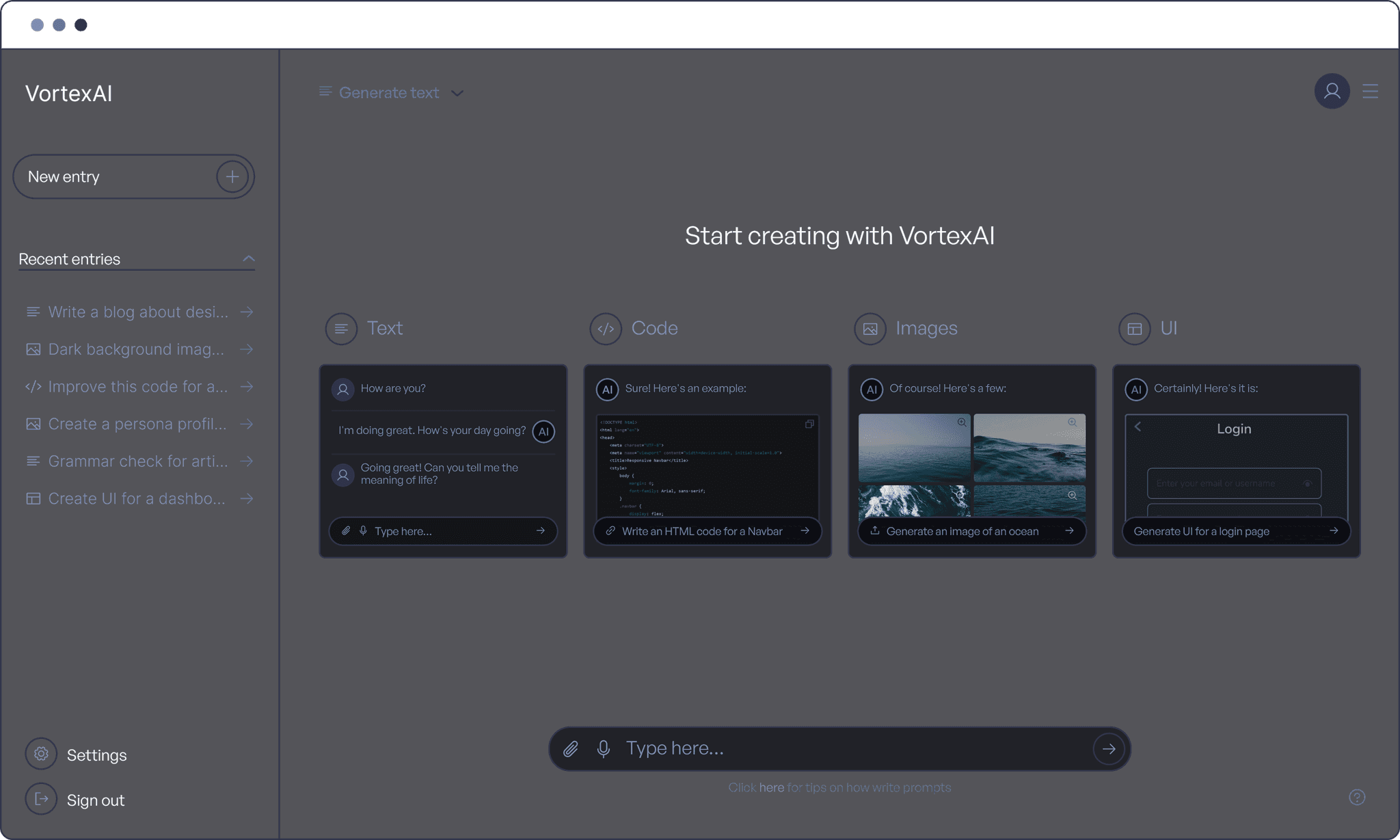
Try Vortex for free
Whether you need to generate text, write code, create stunning images, or design intuitive user interfaces, Vortex is here to help.
Contact us

Try Vortex for free
Whether you need to generate text, write code, create stunning images, or design intuitive user interfaces, Vortex is here to help.
Contact us


